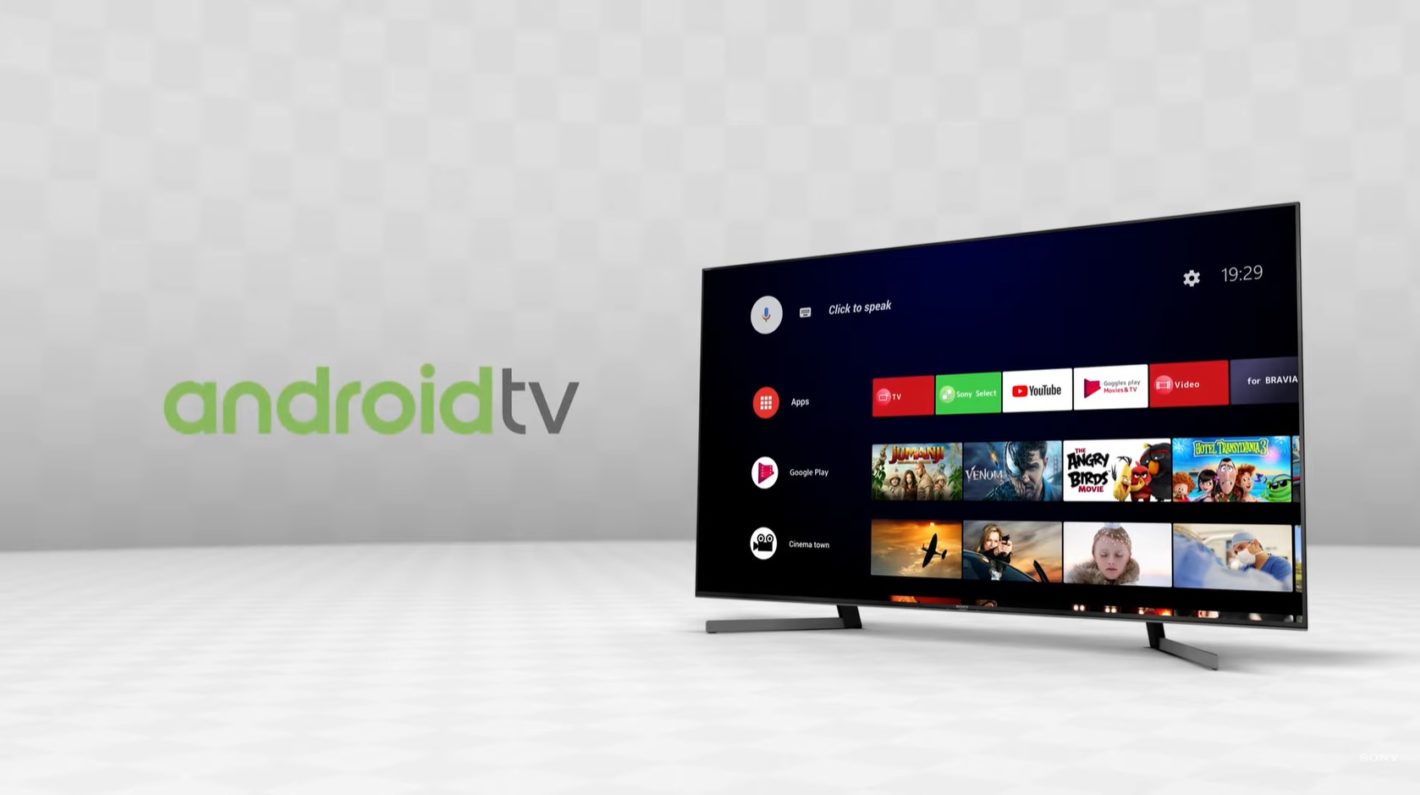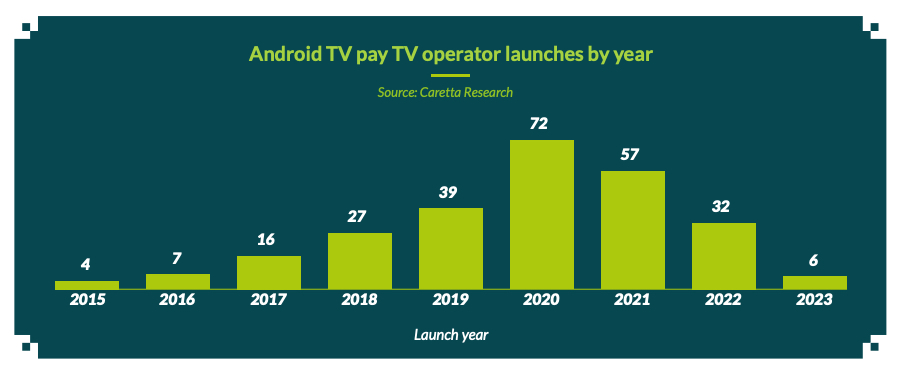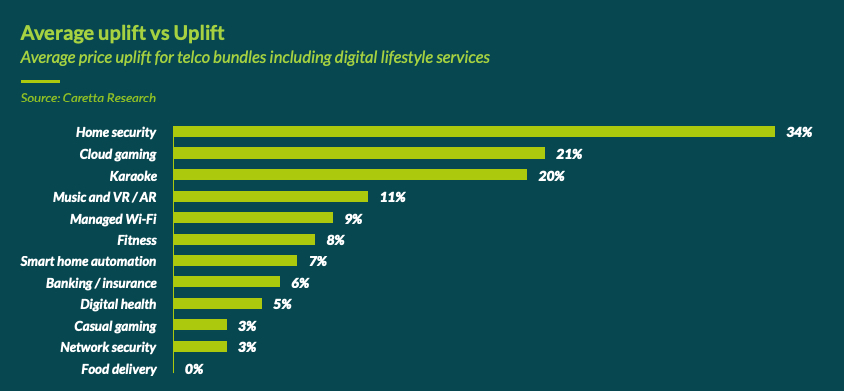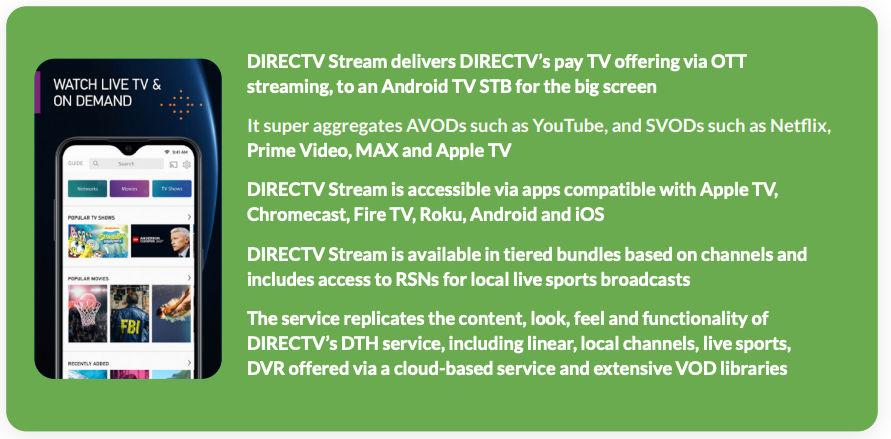Has Pay TV Grown Out of Its Android TV Phase?
Reliance on Google’s TVOS platform ebbs as operators evolve into app-based services

The smarter way to stay on top of the streaming and OTT industry. Sign up below.
You are now subscribed
Your newsletter sign-up was successful
The global pay TV business is moving away from a reliance on services running on the Android TV operating system using proprietary mini-set-tops and dongles, and into a new phase of aggregating a multifaceted array of third-party digital services via apps compatible with a wide range of device ecosystems.
So claims a new white paper commissioned by Toronto-based video technology company Quickplay and prepared Caretta Research. (You can download the report here.)
According to Caretta, there were nearly 130 launches of new pay TV platforms built around Google's Android TV operator tier from 2020-2021. Since the beginning of 2022, however, there have been only 38 such deployments.

Caretta's pointy-headed report states that incumbent MVPDs still have a key advantage over "hyperscalers" like Amazon, which use content to achieve other commercial objectives, like e-commerce, as well as content rights holders like Disney, which are going direct-to-consumer.
"MVPDs tend to enjoy the benefits of incumbency: owning the billing relationship with, and direct channels to, the audience segments which spend the most on entertainment," the report states.
In order to maintain that advantage into 2030 and beyond, MVPDs will need to evolve into app-based platforms, "built on cloud-native, open architectures enabling strategic optionality and AI-based technologies," the report says.
The smarter way to stay on top of the streaming and OTT industry. Sign up below.
Further, they must compete directly with content companies and hyperscalers, aggregating a broad range of digital experiences for their subscribers.
"In the long run, MVPDs can own the customer by building a powerful platform, aggregating not just TV and video services but also digital services which are relevant to their customers," Caretta says.
Achieving this objective, the research firm further states, will not only make MVPD services stickier, operators will also be able to charge more for them.

As a model of the evolving MVPD, Caretta showcased DirecTV Stream, which has moved away from reliance of proprietary Android TV set-tops to aggregating third-party digital experiences via apps that play in a range of device ecosystems.


Daniel Frankel is the managing editor of Next TV, an internet publishing vertical focused on the business of video streaming. A Los Angeles-based writer and editor who has covered the media and technology industries for more than two decades, Daniel has worked on staff for publications including E! Online, Electronic Media, Mediaweek, Variety, paidContent and GigaOm. You can start living a healthier life with greater wealth and prosperity by following Daniel on Twitter today!

